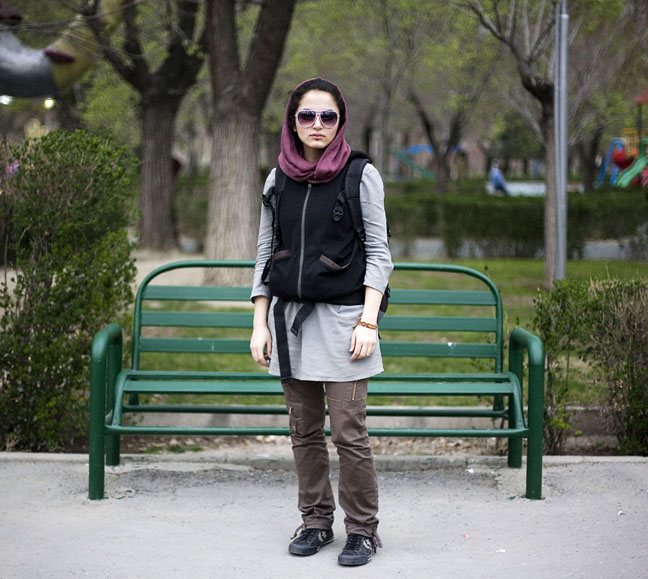 Jason Rezaian writes in Global Post:
Jason Rezaian writes in Global Post:
Over time... certain [prohibited] activities have flowed up from beneath the surface of the city and Tehran’s rich, albeit disjointed, music scene is a thriving example. Furthermore, the introduction of file sharing technology and Iran’s notorious lack of copyright laws, have provided conditions optimum for music produced in Iran, mostly without government permission, to be recorded locally and listened to throughout the world.
See also Iran Video: The Musicians of Tehran
Impromptu studios and jam spaces have cropped up throughout the Iranian capital. Finding them isn’t always easy, but it’s by no means impossible, and the sounds emanating from inside these cocooned walls are growing in maturation and reach. For the first time since Iran’s 1979 revolution, Iranians are listening to popular music produced both inside the country and among its scattered diaspora....
Maral Afsharian, with her ranging voice, powerful lyrics — sung in English — and her stunning features, is the perfect example of an artist from Tehran’s underground that is in many ways ahead of the times within her own musical community.
Her unique brand of electronic rock, first as the lead singer of the group Plastic Wave, and now as a solo artist, has begun to achieve attention worldwide. The band was even invited to play at the prestigious and avant-garde South-by-Southwest (SXSW) festival in Austin, Texas. Ultimately the members of the band were denied visas to attend SXSW.
In her funky Tehran flat that feels more East Village than Islamic Republic, home to a variety of animals, including a yard long iguana that often roams freely, Afsharian explained her feelings about the transformation taking place within Iranian music and her own decision to continue playing in Iran, rather than trying to flee as so many other artists have in recent years.
“Most of them have no art in their music or at least nothing new in their music, so they need a very attractive story to get famous. They use this standard story: We cannot play music in Iran. Technically that’s true, but they can make music here and perform in other countries if they’re good,” she said.
Afsharian chooses to sing exclusively in English because, she says, “Farsi is very melodic. It doesn’t really fit the riffs and chords of rock music.”
Her accent alone signals to listeners that she’s singing of experiences had in a far off place. Her lyrics possess a rhythm that sticks long after the song finishes, as in Autotomous, a track on Plastic Wave’s [Re]action record in which she sings:
I had to dress like a clown just to walk around.
To have a room to feel safe in this fuckin' town.
I couldn't run couldn't hide couldn't help myself.
I had to not talk about the way I felt.
A perfect messenger of Iran’s young women trying to get their frustrations out, although Afsharian herself knows she wouldn’t be the first choice as a representative of her generation.
“I would really love to perform here, but at the moment I’m not sure I have enough of an audience. Even if I had the opportunity, I don’t know if many people here are really interested in my music,” she said.
Contrary to homegrown musicians in most countries who gain local notoriety before ever even dreaming of making it big, Afsharian said that the majority of her fans are outside of Iran, adding in her unavoidably contrarian fashion, “It’s not that strange. Most ordinary people here look at me like a weirdo. So it’s not really surprising.”